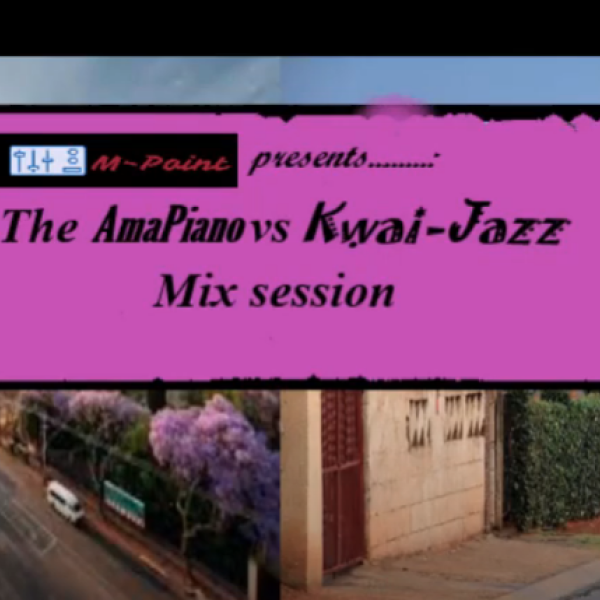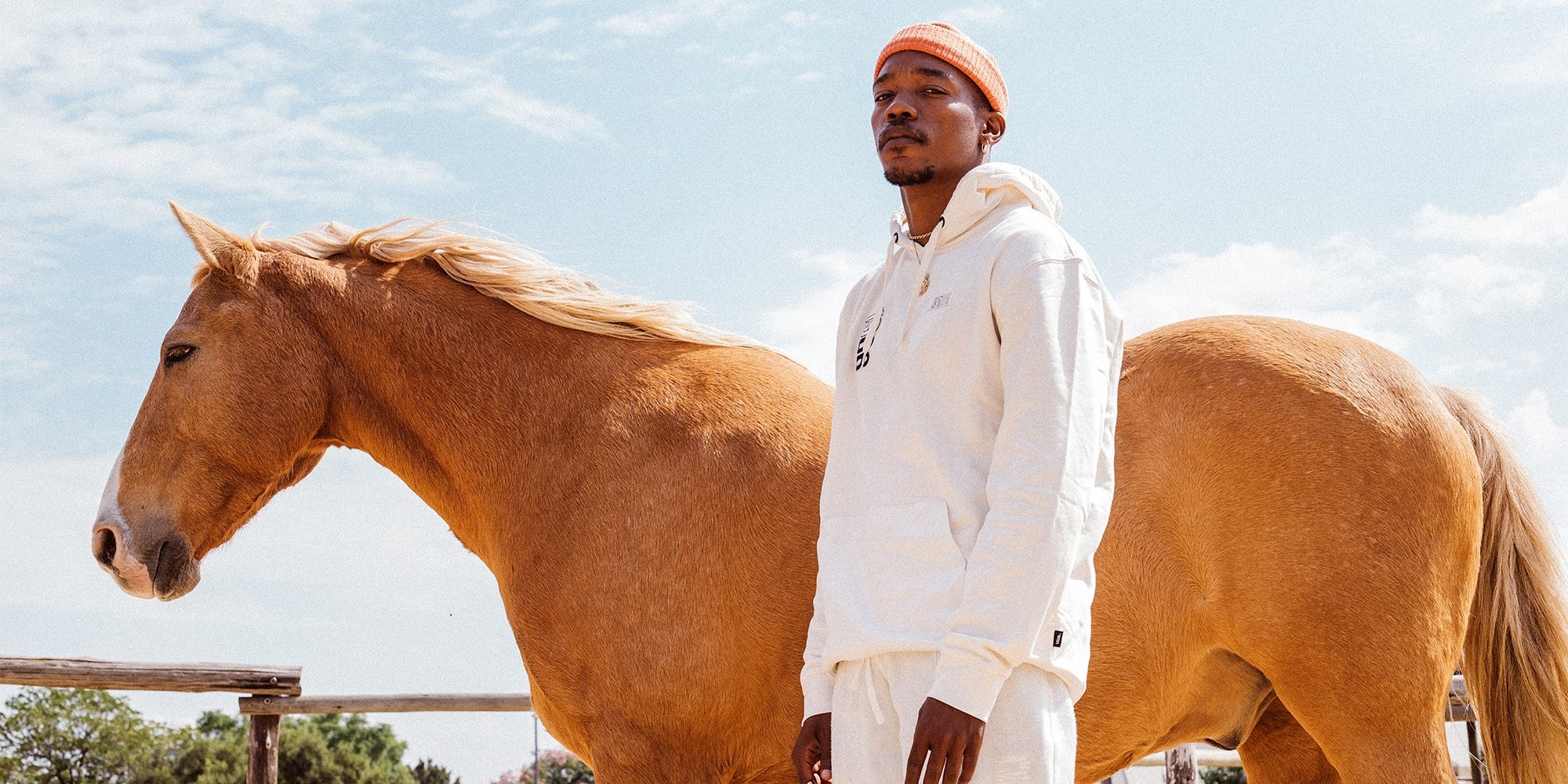South African singer/composer Muzi emerged from his “bedroom beat producer” beginnings with his 2018 release Afrovision. Now, with his fourth release Interblaktic just out, he’s an established star in South African dance music. Influenced by his rural Zulu roots, the kwaito boom, its many descendants and more, Muzi is a one-man dynamo in the studio and on stage, and he’s bringing his show to the U.S. starting on May 28 at the Lightning In A Bottle Festival in Bakersfield, CA. Banning Eyre reached Muzi over Zoom in South Africa to talk about his career and the new album. Here’s their conversation.
Banning Eyre: Muzi, good to see you. Where am I reaching you?
Muzi: Johannesburg.
Great. I've been there a few times, but not recently. The first time was in 1987, just before our show went on the air for the first time.
What!? You must have quite an archive.
We sure do. In fact on that first trip, we bought a lot of vinyl from cutout bins, really cheap. We collected all kinds of township jive, maskanda, mbaqanga. Great stuff.
That's amazing. We can’t find those things anywhere.
I believe that. We were lucky. I've been enjoying your new album and watching your videos. But you are probably a new name for a lot of our readers, so why don’t you introduce yourself?
My name is Muzi. That's my real name, and it sounds close to “music.” That's the name my dad gave me. I'm from KwaZulu Natal in South Africa and the place that I'm from there is called Empangeni. I was brought up very traditionally Zulu. When I was like 5 or 6 growing up at home, once in a while at someone's birthday or a party, music would always be around, but not in the form of like, CDs and whatnot, just at these ceremonies. I think I fell in love with drumming then because I just liked the way the drums sounded: heavy, hollow and very hard.
When I look back, I think that was probably the most pivotal time in terms of all the things I was ingesting. As much as it was a traditional household, everyone in the family played some type of music. My brothers were playing a lot of hip-hop. My sisters were playing a lot of r&b. My dad was playing a lot of electronic music. So it was kind of a melting pot of all these different things.
I actually hear all of that in your music.
Yeah. Everything. That's pretty much my background. I come from a very poor background, but a very loving family. I got a good sense of morals and values growing up. That was really the dopest part about it.
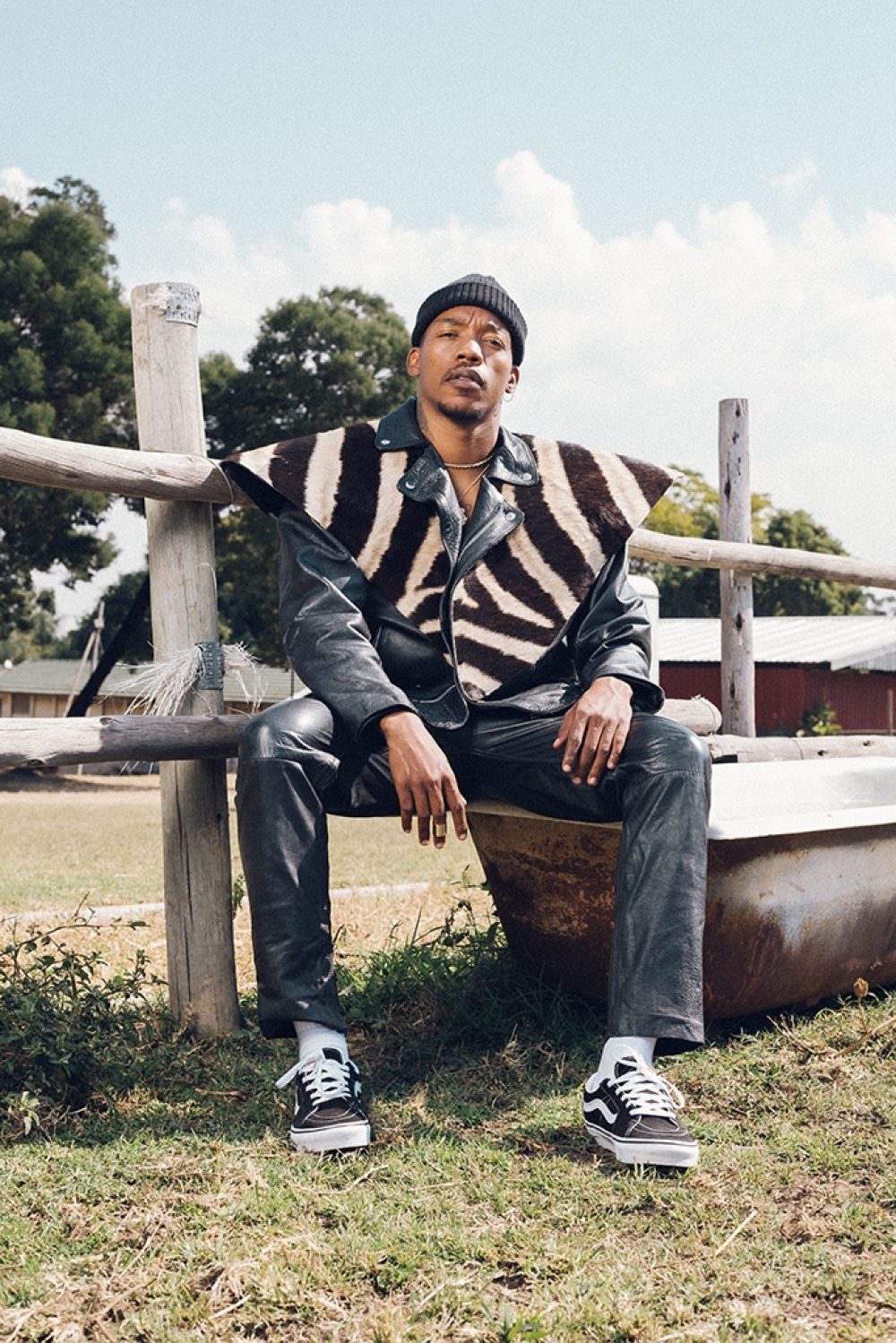
So this is your fourth album. But how did your career get started?
I don't know if it was one thing or just small things that keep on adding up. I remember I did listening sessions for free. At all the listening sessions I had been to it would be PR and industry people. There would be like no people who actually listen to the music. So I invited people, “Would you like to hear my new album? Please come. It's going to be here, and it's going to be free." And this was 2018 for my album Afrovision. And when that happened, I don't know, I think it connected for me, because everyone came. It was so weird. I remember going from barely any gigs to so many gigs in the span of a week. It literally changed that fast.
Well, you are a true self-starter. That is awesome.
Thank you.
Your P.R. refers to you as the Zulu Skywalker. Where did that come from?
[Laughs] I've always been into space and travel, movies and all that kind of stuff. So at the time when I was making my album Afrovision in 2018, I just thought it would be like a cool play on Luke Skywalker [Star Wars], you know, with the whole space theme but the Zulu Skywalker. So I named a song that, and then people started calling me that. And I was like, "Oh. O.K., cool." I didn't think of it as kind of mastermind sort of way. It just happened. People just called me that.
The other word that gets used in your P.R. is Afrofuturism. What does that mean to you?
I think the term I embrace more is Afro-now-ism.
I like that.
I feel like there's so much that has been done by people with regards to music and art and culture, especially with African artists. But if it's always seen as this future thing, I feel like it takes away from the people who have done and continue to do things in the now. So I feel it more as African artists being themselves and doing their best now, not in this kind of robotic future.
I've asked that question to a lot of people who get tagged with the Afrofuturism label. I get a variety of answers. I think for some people it represents not so much the idea of denying the present but transcending the past. But I hear you. We have to live in the moment, and deal with the world in front of us.
Yeah. I have to live my life now.
Let's talk about this album. One thing I have to say is you are a man of many voices. You have a strong high falsetto, but you can reach very low as well. You have a nice range. Did you ever have vocal training?
My mom was a singer. She was classically trained when she was young. So I grew up watching her singing around the house and whatnot. So I think I got interested in music partly because of her, and then when I was starting to create, I never had money to get teachers. So I would just make myself sound different, and then I just fell in love with that idea. it's almost like using different colors when you're painting something. I like using my voice that way. Sometimes I hear someone who can really sing, but the feeling is just not there. I think I can put the feeling there, but I am not an Adele. I try to find middle points where the feeling of what I'm trying to do is there, and that takes me to a lot of interesting creative moments.
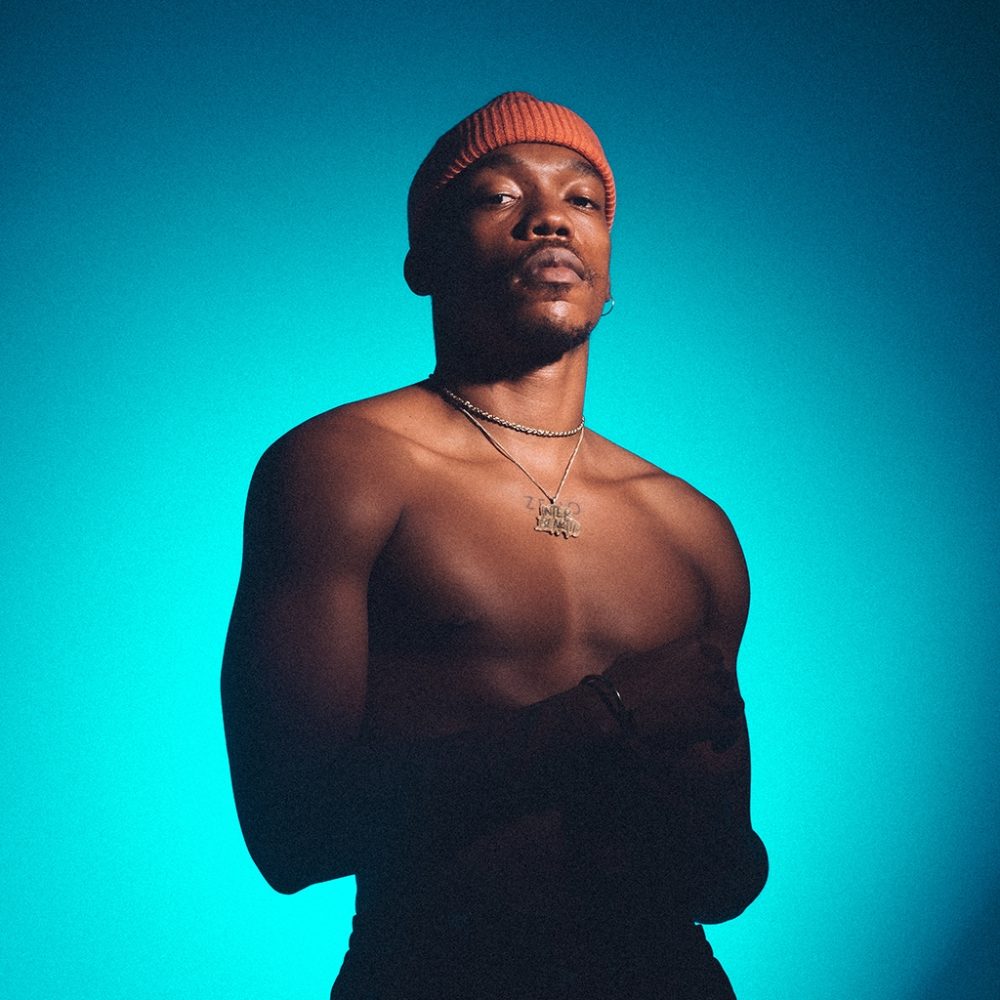
Let's talk about the title track, also the opening track, “Interblaktic.”
Well it's a play on the word "intergalactic," and I just put “black” in there. It's more "Afro-now-ism." The idea is I just am the way I am. Love it or move over. It's not a romanticizing thing. This is how I am and that's the message I'm putting across. Regarding the sonics of it, it's very much like a Detroit, Chicago house thing. It's heavily influenced by that, with piano stabs and minimal production style. But then, I joined that with kwaito, which is a South African genre that was really big in the… Wait. You probably know all this.
Well, I do know about kwaito. And I certainly hear that in your sound.
This is what I grew up with in the ‘90s. When I hear music, I just connect dots. So when I hear like a 4/4 step, I hear that in techno. I hear it in Detroit house. I hear it in kwaito. So for me it's all about connecting those dots, and I think “Interblaktic” as a song is just that.
Speaking of kwaito: We have a young African-American writer and producer who is quite obsessed with contemporary South African music, kwaito and all the spinoffs thereof: gqom, bacardi, amapiano, kwai-jazz. He is very good at parsing all these subgenres. Do you position yourself within any of the genres? Genre names can help you define yourself, but they can also be limiting. And it seems like they change very fast in South Africa.
They do.
So what's your take on all that?
The beauty is that it's putting a label on something so that people can identify it and find it. But I do also find it limiting. Because for it to be a particular genre, there are rules. Whether it’s gqom, bacardi or amapiano, it seems like every two years we have a new dance genre. But the way that I see it is it ends up feeling more like a limiting thing or a timestamp thing, like I need to make every thing I'm going to do in my career fit into these two years, because this is when this thing is hot. But for me, I really want to explore music and do things that I can't do right now. The thing that makes it fun for me is the learning. So I just do what feels good to me. I think that all the documentaries that I've watched and all the people that I look up to, they all talk about following what your heart is doing is what's true you. So as much as it’s purist and idealistic, I like that.
So you don't particularly embrace any of these names in terms of defining your set.
No.
I myself came into South African music in the era of mbaqanga, Township soul, maskanda. And I sometimes wonder with these new genres, if you just sat someone down with an ear for the current music and played them a bunch of tracks they didn't know, would they be able to say, "This one’s bacardi. That one is ampiano,” and so on?
Yes, they would. Sometimes it's a particular sound. We have genres that have to have a certain sound, like a loud drum in amapiano, or a distorted 808 in gqom. That genre has to sound in a particular way. It's not just the particular drum program, it’s how it sounds. If you want to mix it and you're trying to think about it too professionally, it loses the rawness, and then people will say it's not good. But we can all hear the different markers. Bacardi has a particular drumbeat to it. And it's just that. So they all have these particular instruments and features that define them.
Clearly I have a lot to learn. Our writer is now in South Africa doing research about bacardi. I'll be very curious to see what he comes back with.
He's going to find a lot of interesting stuff. But these sounds, even when they were first made: these guys took disco records, slowed them down and then added their own bass and keyboards. There's a particular bass sound that's like an organ, but when you put it really low, it sounds like this percussive bass thing. I only learned that because I had to ask. "What's that? What's that?" It turns out you just go to your organ sound and put it as low as you possibly can and treat it as if it was a bass instrument. So it's things like that. These particular traits that these genres carry. But when you look at them chronologically, you can see how they all sort of fall and overlap each other, how amapiano sounds like a very loungey kwaito, but it's the same rules, and bacardi is fast kwaito. All these things interlock in this beautiful chaotic way.
Let's talk about more of your songs. I've been watching your videos. I really like your video for "Fools Love." It's very poignant with the clown on the bicycle, going from happy to sad.
It's a true story.
Sorry, man.
Yeah. I did the clown thing because on social media, a lot of people will say if you're really into someone, you’re “clowning” for them, because obviously they’re going to do you dirty. So it's a play on that as far as the actual visuals. But the song itself is a true story of me being in love with someone and feeling like a fool because I can't really get out of it, so I'm constantly questioning myself. "Why can't I get out of this? This is a bad situation. I can see it's a bad situation, but I'm in love. What do I love?" It was all of those questions, and I guess the result was me in a clown suit riding a bicycle.
The other one I really like for the song is “Juice.”
“Juice” is me paying homage to a group called Harare, a Zimbabwean group that used to do this sort of punk rock thing before Daft Punk. This was in the ‘70s.
I remember that group.
I love them so much, so for me, that was just me trying to be Harare, that whole song.
Your vocal on the song “Blak” is intense, super deep. I was wondering if that was actually you.
It is. I think that sometimes there's a particular feeling that I chase for a song, all my songs, really. But it’s trying to remain authentic to an idea, and sometimes that means heaviness. My normal voice can't really get there, so I'll try all these different ranges, and different effects, just to see if I can capture the feeling I’m looking for. That's what I do. That song, creatively, is just trying to get into a more primal place, not so much thinking about sonics from a clean perspective, but more from a kind of ceremony-at-home perspective. You’re hearing drums live. That's the kind of thing I try to do with sonics.
It is a moody one. Let's talk about the song "For You." That one has a very cool rhythm, a tricky bass drum pattern.
“For You” is a sister song to "Fools Love." Because it's me continuing on that sort of theme of: “Am I really for you?” So it's playing around with that vibe. The thing that I really liked about music as a kid, especially African music, is it would be so vibey until you hear the lyrics, and you realize, "Yo, this is actually a really dark song."
I know what you mean.
I love the idea of making this really vibey beat and then talking about something that is real to you in the lyrics, just making it sound nice until you actually listen to the words. “Wow. He's going through a lot.” So “For You” is one of those, and I have my friend Espacio Dios on there. We always love playing with the languages from home that we know. So there's Tswana in there and Zulu in there, and put some English in there, but we try to treat it as if we’re writing it in one language, so it all makes sense when you translate it.
It's interesting, this thing about languages, because obviously there's this whole history of using language to divide audiences in South Africa, going back to the Bantu radio stations during apartheid. I remember going back to the ’80s, talking to Johnny Clegg who would sing in English and Zulu, and it seemed revolutionary at the time. We’re way beyond that now, but are there still language barriers in South African music?
I don't think it's a wall anymore. People will have three or four languages in a song. We have 11 languages as a country, so you can hear that people are having fun with it. They’re not really confined by the same rules. Maskandi is like hip-hop culture now. Everyone is evolving, still keeping true to the roots of whatever genre it is. But I think with language, everyone realizes that it's all actually the same language but in different timelines, all of us being Bantu people. With that, it's just not the same anymore. It's not like, “Oh, if we are Zulu, we don't make this music or that music.” People just make what they like.
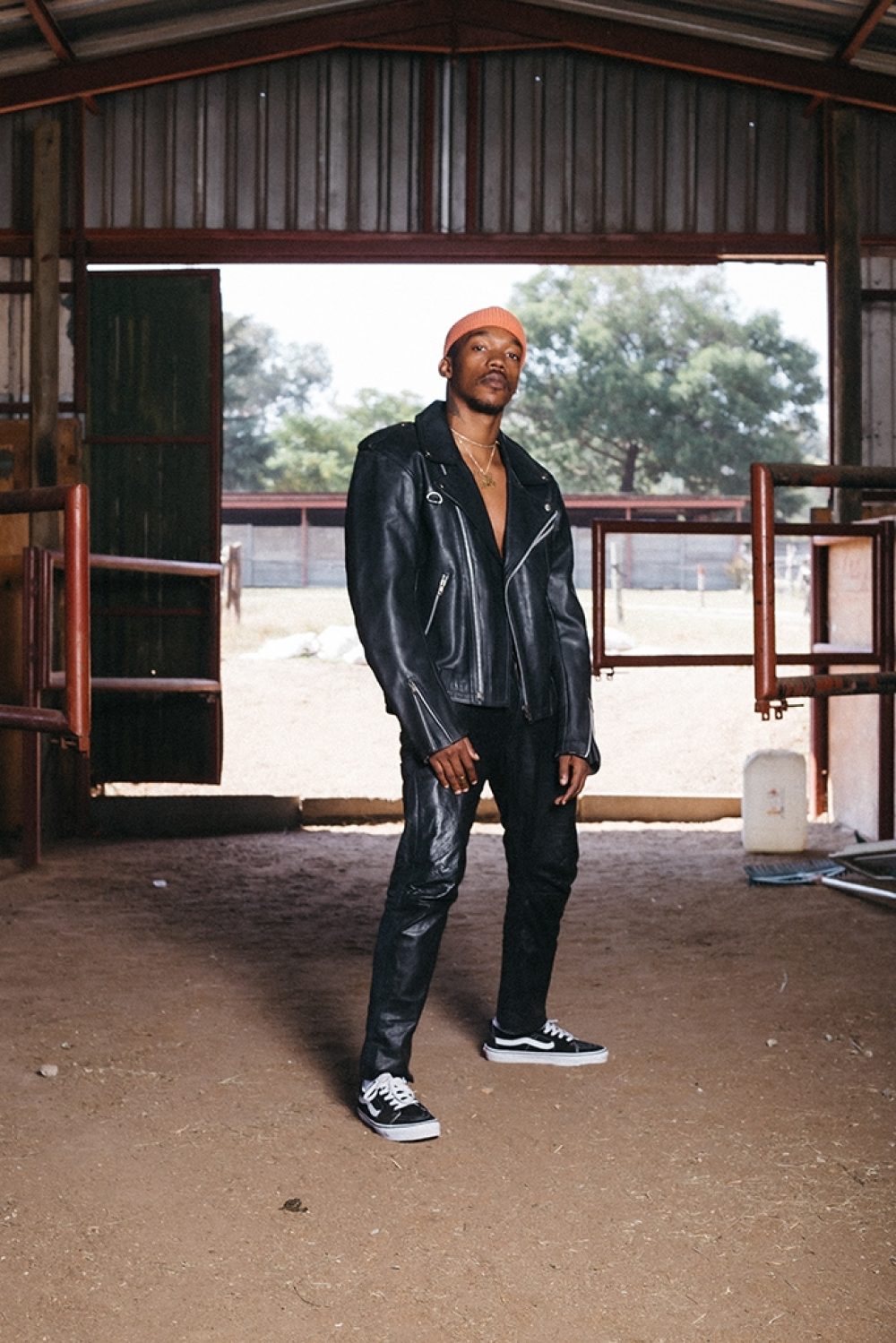
That's great that it's not a wedge anymore. We listen to music from all over Africa, and these days, we’re being inundated by music out of Nigeria, Afrobeats, which also merges languages a lot. What's the profile of that music in South Africa? Is it popular? Is it influential? Do you feel like you learn anything from it?
It's very popular. I think that amapiano is kind of a version of, or a child of Afrobeats and kwaito or African house music. It has elements from all of those genres. The walls just aren't the same because of the Internet. People can actually enjoy different genres. Afrobeats gets played on radio. It's big. Some of the big guys come here to perform. And people that are big here will feature guys from Nigeria or Kenya, and vice versa. The walls are just not there, which I think is dope.
It's a big change. Maybe the biggest difference between now and when we started working is that back then, genres tended to be only known within their language sphere. That's been blown wide open, and I guess a lot of it has to do the Internet, but also satellite television competitions. I think you're onto something when you say people are having fun with it. It's a nice trick to mix up a bunch of languages. But South Africans listening to Nigerian music was something that didn't happen back in the ‘80s. This change has created a much larger market for artists. Suddenly there is more exposure and more money, certainly for the big artists. It's a different world.
I think we realize that some of these things we can do ourselves. The thing that was really lacking was infrastructure. You had all these talented people, but really bad infrastructure, which meant that the talented people never got their break. And that’s something we’re still fighting against now. I think collectively everyone who's an African artist is like, "We need to do this thing big, or even bigger." And we have. I mean you think of Madison Square Garden. How many people in Madison Square Garden? 20,000?
Burna Boy sold it out a few weeks ago. That was amazing. Historic.
And that's really, really dope. But just think of the brand that Madison Square Garden is, and then you come home, and there's 40,000 people at just a normal stadium. You know what I'm saying? The industry is growing. Things are happening. And I think that's the most beautiful part. It's very encouraging when it feels like we’re doing it for ourselves. Some artist don't even want to leave anymore, because there’s so much to do here at home.
That is remarkable. But what is the business model these days here? It used to be connected to record sales, but that's almost gone. In West Africa, where they had so much piracy, artists never really made that much from their recordings. It was all about live shows. And now it's all about sponsorships, satellite TV competitions and stadium gigs, or how many followers you have on Facebook and YouTube. It's so different from the way it worked in the past.
How did it work in the past?
Well in West Africa it was very difficult because piracy was such a problem both with cassettes and CDs. Major artists would release an album and within days the streets would be flooded with cheap pirate copies. So they really couldn't make money off their recordings. It crippled the industry for many years. So it was all about performing live and getting patrons, and if you could, international tours. It was a struggle. And many times governments were complicit with high-volume pirates. Huge shipments of pirate product would get through customs. It was a mess. But back to now South Africa, how do you climb the ladder?
Some things are still the same. You're trying to make music that's great, and trying to get people to listen. Word-of-mouth is still important. Obviously live shows, having actual gigs is important. But it has changed in this way. People want to fall in love with you, and like you. Artists could hide behind their music before. But right now, you can't really hide behind the music or your art, because you yourself become the product. A lot of the artists who are getting endorsement deals it is because of that, because they themselves become the brand. As much as the guy that goes on stage or the girl that goes on stage, it's also the girl that looks good in a pair of shoes. And in that way the business model has changed so that a lot of artists think they can be independent. There are so many more streams of income that come as byproducts of the music and that can end up making you more money than actually streaming music.
A sponsor sees big numbers and they say, “O.K., this artist is doing something." They're just thinking about that, how many likes their post is going to get. You don't just have to make music, so it becomes a bigger business almost.
There was a line that jumped out at me from your video for "I Know It." You say, "Am I real to you if I don't post?"
I felt like I was living life on my phone and that wasn't real to me. Sometimes if you don't post something, people don't think it happened, which is the weirdest thing.
It is hard for me to relate to. I did not grow up with this. But I see that it's real.
It became a bit weird for me because I was born in 1991. I had about six or seven years before the Internet became a thing. So there was a time in my life where life was actually just like… living.
You do remember that.
Yes, I remember that. So now, I'm in this weird place where I've lived a life before social media, and I've lived a life within social media, and now I want balance. So that's what that song was about.
I think it's a universal issue for the whole world these days. It has to be resolved somehow.
You sing about love, romance, relationships, social media. Are there other subjects? Do you ever sing about political things, social issues?
Yes. There's a song on Interblaktic called “Ngawe.” That song is written from the perspective of my mom, from a woman's perspective. The lyrics pretty much translate to: "You can't tell me what to do." And then at the end, it talks about how this is what I learned from my mother. It’s a repetitive trancey song that speaks about the strength that I saw on my own mom, and also the inequalities that I see being a guy myself, and knowing and understanding my own position in this world, and trying to add my own two cents into that with my music. I’m shedding some light on that and trying to speak from what I learned from my mom.
The music is actually very politically charged, but it's in a very subtle manner. On first impression it's dancey. It’s vibey. It's very big sounding. But I always try to add some lines that are politically charged. Even though they're surrounded by all of this other stuff, so it doesn't hit as hard. I want people to go, "Wait. Did he really? What did he say?”
Give me an example of that. I love that idea.
“Red lips, kinky hair, Black skin, queer as hell. Love it or move over.” It's the image of how Black people were seen back in the day, how they used to be painted and stuff. And in that same sentence it talks about how I'm proud of who I am. This is how I really am and I'm O.K. with it. That’s “Interblaktic.”
Nice. I hear little hints of what I associate with Zulu music in your sound, sometimes those low minor key vamps. I hear a bit of it in “Juice.” Back in the ‘60s and ‘70s in African music in general—I know all this comes later in South Africa—but there was a feeling of wanting to embrace African tradition as a way of throwing off the stigmas and hangups of colonialism. See, you had a lot of popular music that was based on traditional sources. I have heard it said that there's kind of a rejection of that impulse in today's South African music. What's your take on that?
I think those genres are still there, but they've evolved. Someone who was there when maskandi was first booming, versus someone that's here seeing maskandi blooming now, would probably have two completely different experiences. The venues aren't the same. They don't dress the same.
No more feathers and furs.
There's an actual fashion that goes with this, the PacKids, the Cavallo shoes. So it's become a different thing, but it's still maskandi music. And it's big. They sell out stadiums, hundreds of thousands of cassettes and CDs.
So interesting. That music does not get to us at all. I'm a guitar player, and I really love the guitar-playing in maskanda.
There's a tension and release them. It hurts. When you try to imitate that, it actually hurts. There's a tension and release to the way to actually play that guitar. It's so much tension.
It is hard. It's very hard, and very specific.
They're still there. I think they're still there. It might be like mainstream television, media. Mainstream media moves with whatever is commercial and current. So at one time maskandi was a commercial genre, and maybe amapiano is that now, but it doesn't necessarily mean that maskandi is not there.
Good to hear. Let's talk about your live show.
My show is like the White Stripes. There’s just the two of them and they have all these instruments there and they keep running between the different instruments. That's like my show, but it's just me. I just run between everything. I used to deejay, and one time there was a show where they cut my set to five minutes. So I was like, "Oh wow, no one is even going to see me." So I deejayed the song and then I took the mic and performed the song. I realized I could actually do this at the same time, like a hybrid of deejaying and live performance being on the mic at the same time. It's like a back-and-forth thing.
Have you gotten to play outside the country much?
I've been touring outside since 2014. There was a really beautiful interest in what I do because it was different. Obviously it sounded different than what a lot of people were hearing in Europe primarily. I’ve been very lucky to travel. The first time I came to America was 2019. I had a seven-show tour at the time: Afro Punk and another festival, and then we did some of our own shows in Oakland, and another in L.A. We were just trying to get as much buzz as we could. It was like the ‘70s and ‘80s, pushing from the ground. So we were doing that. And I'm coming again next week.
Yes, your tour details are here.
So let me ask you. What got you interested in documenting African music?
That goes way back. I was a guitar player listening to blues, funk and rock, jazz and also lot of Black American music in the ‘70s. Sometime in the ‘80s I started hearing music from Nigeria, Congo, South Africa, and got really interested. Then when my friend Sean Barlow started this radio program, I went on one of the first field trips. We went to Kinshasa, Brazzaville, Harare, Joburg and Cape Town. I had my guitar along and wrote about a bunch of guitar players, including Ray Phiri, fresh off his Graceland experience. I just fell in love with it all. I had gone through a lot of genres as a musician and as a listener, and I just found something special in African music. It was a great time because African music was just beginning to get exposed in America, and there were record companies that promoted it, and there were lots of shows and tours. Everybody was looking for the next Bob Marley, but I was finding all sorts of things to explore and write about.
Wow.
It was kind of a boom, and it was an exciting time to be in it. I got hooked on the whole experience of traveling and meeting musicians learning their stories. Then I just kept going, and here we are.
I guess I can understand. When you hearing something that's interesting but you don't quite know how to define it completely, I guess there's two reactions you can have. You either reject it completely, or you get immersed in it. You dive in. That's why I find it interesting, because I can see that you are very passionate about it, which is dope.
I also think that Africa has a lot of relevance to the United States that we don't understand very well. There's so much Africa in our own culture, even things we don't recognize. To me, it's all one big story, and I find it endlessly fascinating. And now it's cool to see how the story is changing. Your generation is writing a whole new chapter. We are actively looking for young writers and producers to give your generation the kind of attention that we gave to ours. So it's very nice to meet you and hear your story.
Thank you. Thank you so much for taking the time.
Check out our website. A lot of good stuff there. And have a great tour.
Thank you.
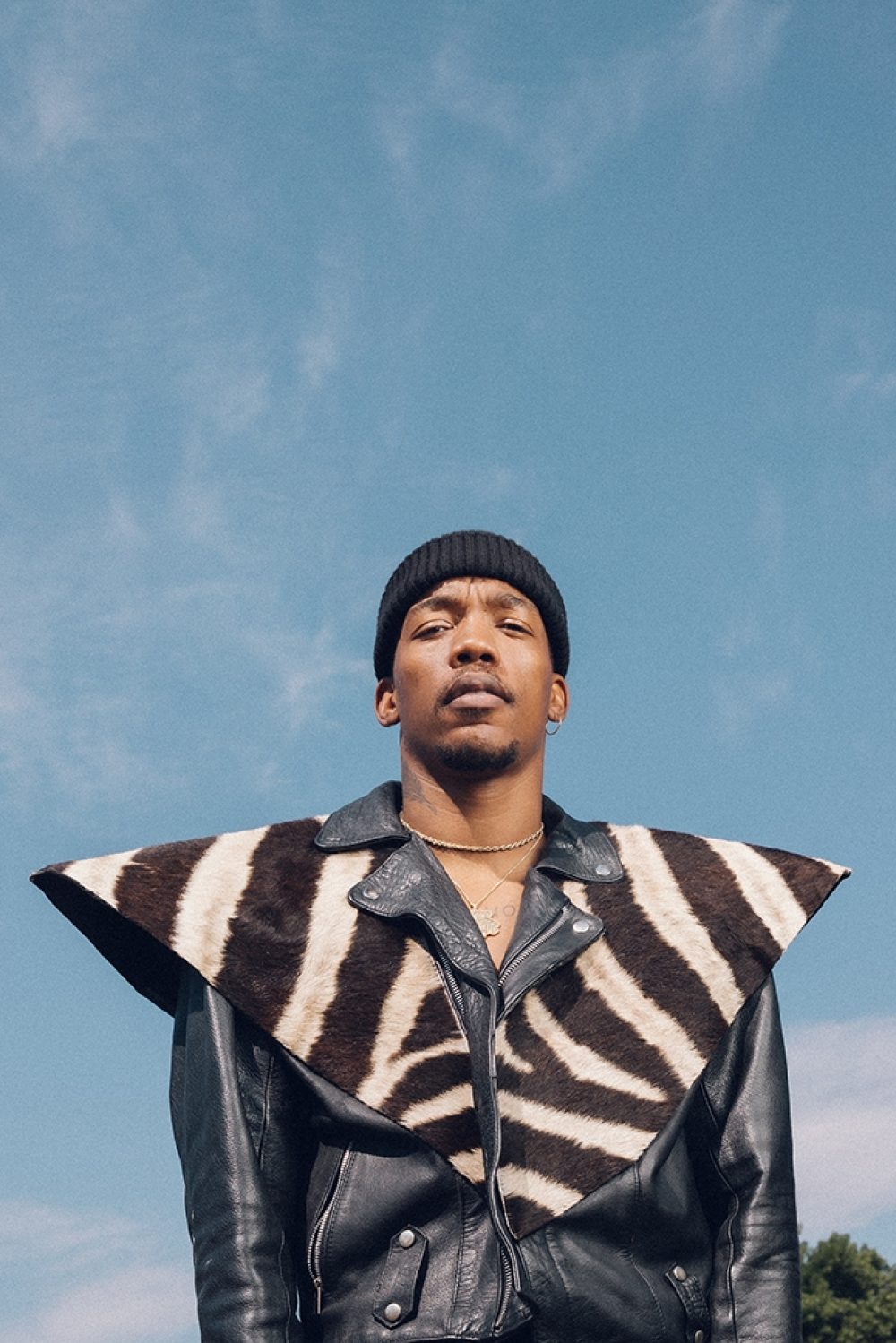
Related Audio Programs
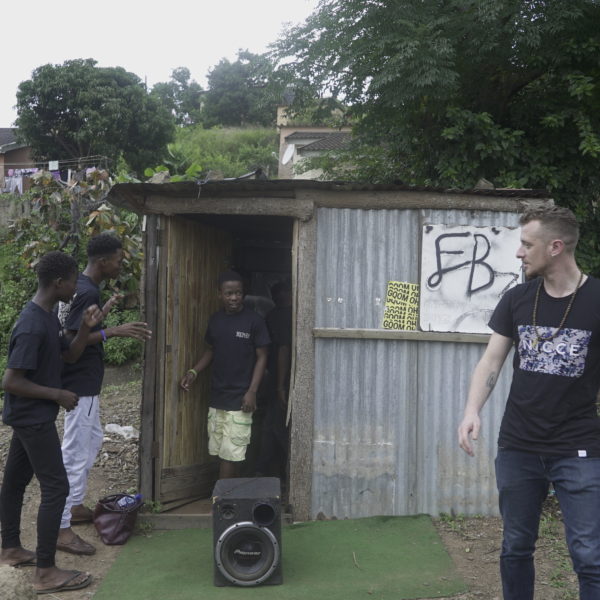
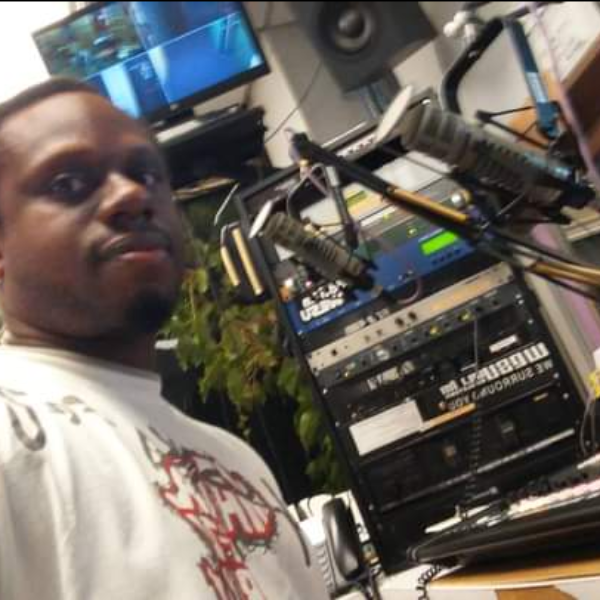
Related Articles
